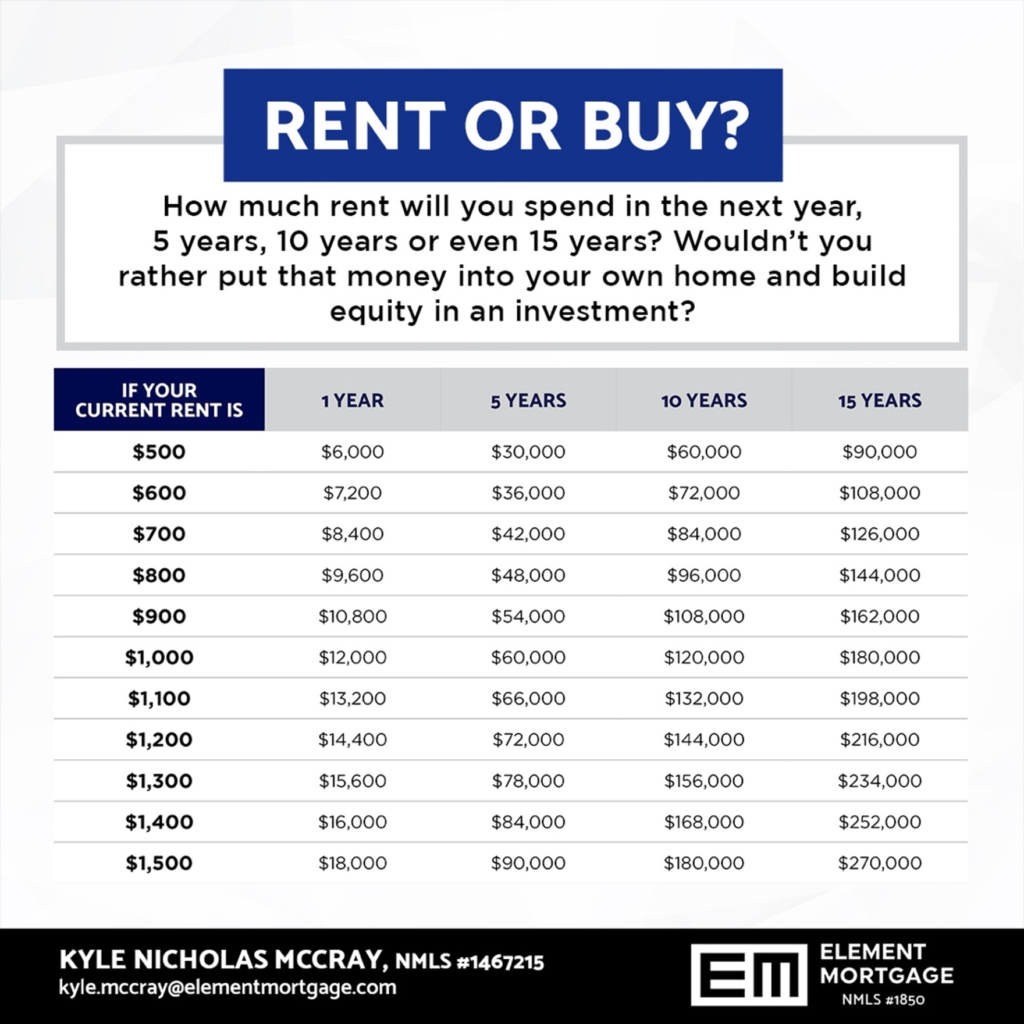Imagine a scenario that eliminates the need to hire a moving company and saves you the hassle of updating family and business accounts on the new address. The list of conveniences don’t stop there when it comes to purchasing the house you rent.
This is only possible, though, if your current landlord is thinking about selling the rental to you.
While there’s a ton of upside to purchasing the home you rent, there are some disadvantages to speak of too. First, more on the benefits.
Benefits
Owning a home is special. It gives you a place to set down roots, a common and comforting base for your family. This provides a sense of stability and belonging. Additionally, it is a financial investment in that you can build equity as you pay down your loan. If you own your home, you can make whatever upgrades you would like to it. As you do this, your home begins to feel more like it is yours, but at the same time you may be increasing the value of the home, which helps build up equity you can access at a later date to either pull cash out or refinance with.
A boost to your credit can come along with making regular mortgage payments as well.
If you get a home loan, you also can hedge against inflation by choosing a fixed-rate mortgage. This means what you pay toward your mortgage can’t change regardless of what is happening with the economy. (I would be happy to explain this further, just reach out!)
Let’s not forget about the pure financial aspects of owning vs. renting. As you can see in this chart, you are throwing away a lot of money by paying down someone else’s loan.

Let’s talk about the deal itself. If you’ve already established a good rapport with the property owner, then you’ll have an easier time gauging your bargaining position and any possible leverage you might have.
There’s also a flip to all of this.
Engaging in negotiations gives the property owner several advantages. For instance, it could mean more money for them since they will not need to spend resources on planning the sale. They can also expedite the sale of the home, and receive rent money on a prorated basis. Overall, the landlord might feel like they have the negotiation edge.
But what’s in it for you?
As the homebuyer, the advantages of not having to move, or plan new commutes or change schools, are some obvious benefits anyone would love to hang on to when they’re buying property.
Additionally, as the current renter, you might be able to negotiate a better price. If you and your landlord can make it work, there won’t be any need for real estate agent services, saving the property owner potentially tens of thousands of dollars on commission. That’s some serious leverage that can be used during talks. While you’re still on the hook for real estate services, the fees will more than make up for themselves if you can agree on a killer price for the home.
The peace of mind of not having to move is also priceless. Depending on your age, moving furniture and loading and unloading it from a moving van might not be appealing. It might also pose a hazard to your health, especially if you already have some back issues. Not having to move is a major luxury and will save you a pretty penny on moving costs.
There’s a lot of guess work that goes by the wayside in this type of homebuying arrangement. For instance, because you already live in the home, you’re aware of the home’s condition and possible repairs. Making repairs and updates to a home are a huge expense that you might be able to avoid by staying put. While it’s still advisable to do a home inspection, you will probably be holding your breath a little less since you already know the home’s overall condition and how well it’s been taken care of.
Along with knowing you’ll stay put in a neighborhood you love and one that’s near your favorite places, there’s another big factor: Owning can be less expensive than renting. There’s a lot of numbers to crunch, but generally speaking you’ll be saving money and investing in real estate, which can have an accumulating effect on wealth over the long run. And it’s not very often that you have an opportunity to test drive a home for months and months before signing the paperwork to make it your own.
Disadvantages
Now as far as disadvantages, first, you will limit the possibilities by not looking at other comparable homes, which could have features or the extra space you crave.
It’s also possible that you might not be ready. Maybe the landlord approached you and caught you in the moment. So, you decide to go for it. If your decision to buy a home is unplanned or done in haste, it’s OK to step back and objectively review the financial details before moving further.
At the same time, in your haste, you might have overlooked the true costs of homeownership. For instance, as the property owner, you’ll be responsible for city and county services and also property tax and insurance. It’s ideal to first take a long hard look at all the associated costs before making the commitment.
Finally, it’s also important to remember why you’re renting. Maybe you figured the home is a transition home to something that’s bigger or closer to work. It’s important to consider how long you can see yourself living there before deciding on purchasing it. In context, renting and buying are very different. So make sure you’re accounting for the various factors. And if you love the home and have the budget to take on homeownership, then going for the home you rent has some big-time upsides.
Please do not hesitate to contact me for any questions about purchasing the home you rent. Email me at [email protected] or give me a call at 916.880.8059!
About Kyle
With nearly a decade of experience in the mortgage and real estate industries, I have a strong understanding of how to evaluate an individual’s situation and determine how to best meet their goals. My approach for California, Nevada, and Colorado current or future homeowners is to educate, advise and deliver a top-notch customer experience.
I’m committed to working for my clients as their mortgage expert, advocate, and partner in their journey toward purchasing or refinancing a home.

